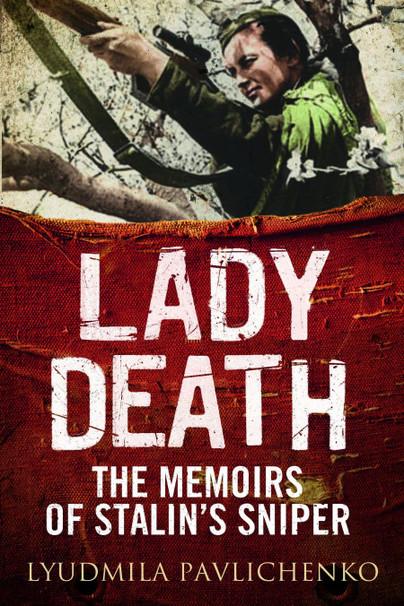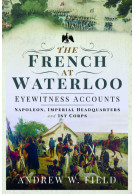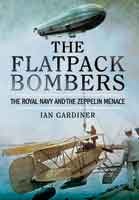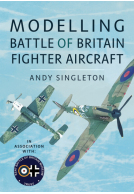Sniper on the Ypres Salient (Hardback)
An Infantryman’s War In The Royal Welsh Fusiliers
Imprint: Pen & Sword Military
Pages: 224
Illustrations: 35 mono
ISBN: 9781399095570
Published: 16th September 2022
(click here for international delivery rates)
Need a currency converter? Check XE.com for live rates
| Other formats available - Buy the Hardback and get the eBook for £1.99! | Price |
|---|---|
| Sniper on the Ypres Salient ePub (19.5 MB) Add to Basket | £6.99 |
Just after midnight on 22 April 1916 on the Western Front, a sergeant from the 15th (1st London) Royal Welsh Fusiliers came sliding and stumbling along the dark, mud-filled trench towards the four men, huddled together and soaked-through, in the shallow dugout. He was clutching his postbag in which there were four parcels for one of them, William McCrae, whose twentieth birthday fell on this day.
A hand-written account by William, my grandfather, was found in my mother’s papers, long after his death. This book describes a year of his time fighting in the First World War, from December 1915 to December 1916.
Two months after his birthday, he was marching towards the Somme, where he was to act as a runner during the key Welsh engagement in the Battle of Mametz Wood. Later, he went on to volunteer and train as a sniper. He continued in this role for over a year, becoming a lance corporal in the 38th Divisional Sniping Company while fighting on the Ypres Salient. His words emphasise the key role snipers played in the collecting of intelligence about the enemy, through close observation and careful reporting.
His account stops abruptly in mid-sentence, just at the point where he indicates he is about to reveal more to us about ‘a new, interesting part of the line to be manned by us Snipers’.
Piecing together clues from his sketches, maps and photos, and this book paints a picture of Williams’ time during the rest of the war. In 1917 he returned to England to train as a temporary officer in the 18th Officer Cadet Battalion at Prior Park, Bath. He came back to the Western Front as a 2nd Lieutenant in the Duke of Wellington’s (West Riding) Regiment, where he was seconded to the 1/5 Lancashire Fusiliers until the end of the war. During this time, it is likely that his interest and experience as a sniper continued, with evidence that he may have taught at one of the Sniping Schools set up across France.
Read the full review here:
The Long, Long Trail
https://www.longlongtrail.co.uk/review-sniper-on-the-ypres-salient/
The book contains key extracts from his sketches, maps, and photos, and therefore provides a very interesting, and indeed useful account, the rest of the war. By 1917, he had returned to Britain and trained as a temporary officer.
Jon Sandison
The final words of the author, reflecting on a trip to Dartmoor and time with her grandfather, tie up her work well:-
"I remember, one summer, sometime in the 1960s, when I was around 10 years old. I guess he had a rucksack of sorts, definitely his binoculars and a map. A special day, just me and my grandfather'.
Overall, a special book on so many levels.
McCrea and Boase have, between them, written an informative and entertaining history that is well worth a read.
Army Rumour Service (ARRSE)
Read the Full Review Here
As featured in
Suffolk and Norfolk Life
Sue Boase has taken her grandfather’s papers, discovered long after his death, and transcribed and transformed them into a really well detailed description of just over a year of his life on the Western Front, not only from the words from the papers and exercise books, but also from her own research and background reading, to produce a most remarkably well constructed book dealing with his enlistment into the 15th London Welsh Battalion of the Royal Welsh Fusiliers, his experiences of France and Flanders, through the Battle of The Somme, to the Ypres Salient in 1915 and 1916. His account stops in December, 1916, in mid sentence.
Scott Flaving. Hon Sec to the Duke of Wellington’s Regiment Museum Trustees & Regimental Archivist.
However, he fought on, becoming a sniper and attending one of the first sniping courses set up at 2nd Army Sniping Course at the School of Scouting, Observation and Sniping. The details of the art of sniping and recording are phenomenal and should be required reading in every Snipers platoon in the British Army. Indeed, brief mentions of some of his course work papers Sue has seen would surely make an extremely interesting sequel to this book for students of the Great War.
The book itself is very well laid out and easy to read, there are sketches from his sniping posts as well as photographs of his comrades in training and at war and from his days at the 18th Officer Cadet Battalion in Bath. He applied for a commission in 1917 and was selected, leaving for the UK on the day that the 3rd Battle of Ypres (Passchendaele) was launched. He was commissioned into the Duke of Wellington's (West Riding Regiment) on 30th January, 1918, and was eventually posted from the 3rd Battalion of the Regiment back to France, arriving at one of the Infantry Base Depots on 9th April, 1918. He very quickly attached to the 1/5th Battalion of the Lancashire Fusiliers where, evidently, his prowess in sniping was very useful. A last piece of his written account describes Armistice Day in billets in Hautmont, a Belgian town that they had just liberated.
This book cannot be recommended highly enough for its superbly written and edited story of a young man’s war.
In the early 1920’s William McCrae who had served as an infantryman on the western front wrote down his memories of his time as a soldier. These have now been published and edited by his Grand Daughter Sue Boase. She has written a linking commentary and researched and provided the historical context to his experience.
Alan Gelson
William McCrae possessed both keen powers of observation and an ability to record his reminiscences with clarity and a poet’s eye. His account bears comparison to Wilfred Owen’s letters home, and to the memoirs of Robert Graves and Siegfried Sassoon both of whom had served in William’s own regiment the Royal Welsh Fusiliers.
From the start I became engrossed both in William’s account and in the family and historical context provided by his Grand Daughter. It is written in a manner that invites the reader to vicariously experience all that he went through and to place it in the wider events of the time.
It is easy to overlook the sheer physical hardships for those serving in the trenches. The lack of shelter often in freezing and snowy conditions. The meagre rations and the lack of sleep and often boredom interspersed with perilous danger. Many infantrymen almost welcomed death or preferably a ‘Blighty wound’ as a release from the torment of their own existence.
William’s description of his part in a raid on German lines is masterly. He explains that he volunteered not out of bravery but because he felt that he needed some way out of his current misery. He was not seeking glory and did not want to be regarded as a hero. He had said quietly to his friend Douglas that he would not mind” having a cut at Death and Glory “and Douglas who did not volunteer said “Major, Mac’ll go” and it was decided.
He went into it as did his fellow fifty volunteers with a realisation that he had a good chance of being killed or permanently maimed. He describes the ‘gallows humour’ of the party in the lead up to the raid, and later describes all that they went through from its inception to its bloody conclusion.
William dispassionately noted the strengths and weaknesses of the Officers and Men with whom he served. The drunken bullying Captain who was relieved of command and cashiered, the Non-Conformist Padre who blessed them before they went into action and many more brief, fascinating vignettes.
He realised how much more comfortable the life of an Officer was [although not at times less dangerous] but he relates his experiences without rancour or self-pity.
He seems to have possessed patience and inner strength as well as resilience and courage. These qualities were recognised at the time, and he was selected to be firstly a company runner and later trained as a sniper finishing the war with a commission. At no time did he cease to realise war’s futility.
I immediately reread this book on completion and with heightened appreciation. Its details will remain with me for ever and his conclusion that “There is no glory in war, none whatever, only suffering despair and death” need to be drummed into those who wield power in our fallen world.
As featured in
Suffolk and Norfolk Life
Article: Grandad's life as a WWI soldier inspires new book
Haverhill Echo
About Sue Boase
During her career Sue has worked in primary health care, both clinically as a practice nurse, and as a researcher at the Primary Care Research Unit, at the University of Cambridge.
She then co-authored Nursing Through the Years: Care and compassion at The Royal London Hospital, which was published in 2018. This book was the outcome of an oral history project set up by The Royal London Hospital League of Nurses, which focused on capturing the experiences of nurses who had trained at the hospital since the 1940s.
Sue had previously discovered the unpublished First World War diaries of her grandfather William McCrae, amongst her mother’s papers. Having completed a course in creative non-fiction writing at Madingley Hall, University of Cambridge, Sue then began to explore his story in more detail. This fascinating and absorbing journey has culminated in the publication of this, her next book, Sniper on the Ypres Salient.
Lady Death The Memoirs of Stalin's Sniper (Hardback)
The wartime memoir of Lyudmila Pavlichenko is a remarkable document: the publication of an English language edition is a significant coup. Pavlichenko was World War II's best scoring sniper and had a varied wartime career that included trips to England and America. In June 1941, when Hitler launched Operation Barbarossa, she left her university studies, ignored the offer of a position as a nurse, to become one of Soviet Russia's 2000 female snipers. Less than a year later she had 309 recorded kills, including 29 enemy sniper kills. She was withdrawn from active duty after being injured. She was…
By Lyudmila Pavlichenko, Martin PeglerClick here to buy both titles for £36.99

















